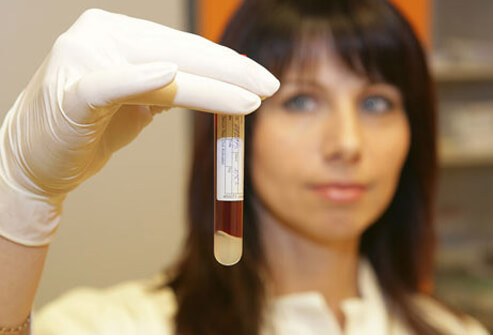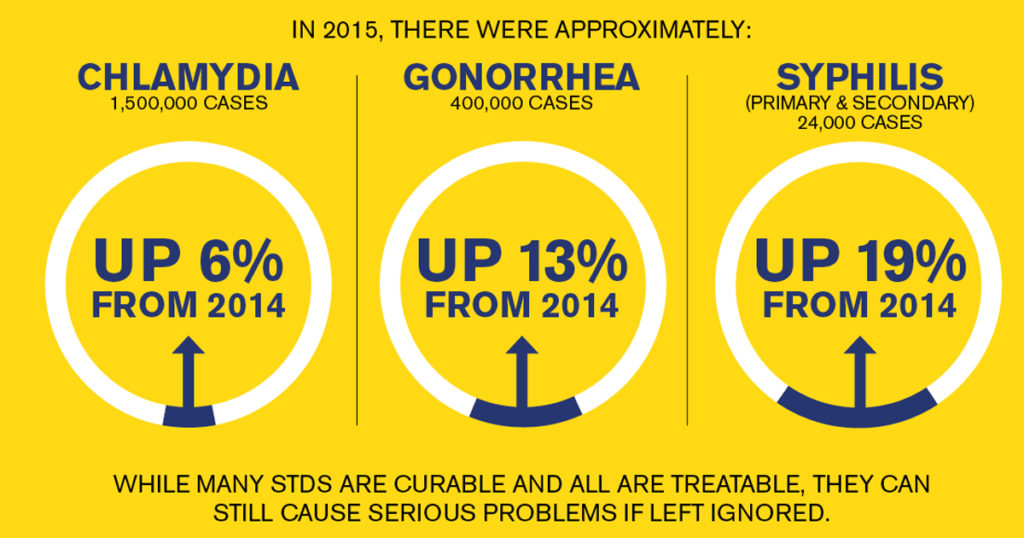
Did you know that according to American Sexual Health Association almost 50 percent of men will get a sexually transported disease at some point in their life?
That’s why it is necessary that we recognize STD symptoms early. A timely intervention can prevent it from becoming a severe health risk.
There are many types of STDs, the 5 most common ones being the following:
Human Papillomavirus (HPV)
HPV is more common than any other STD in both men and women. As per the Centers for Disease Control and Prevention, almost all sexually active adults will get one strain of HPV, if not more, in their life.
There are about 100 types of HPV. Based on the health risk they pose, HPV types can be classified as low-risk or high-risk.
Low-risk HPV infects the genital region and might cause warts. On the other hand, high-risk HPV might trigger abnormal cell changes in the penis or anus in men. In women, these types trigger abnormal cell changes in the female cervix (neck of the uterus).
HPV types that infect the genitals are typically acquired through direct skin-to-skin contact with an infected person during sexual contact. Types of HPV which affect the genital region usually don’t spread to other body areas. Likewise, types of HPV which lead to warts on fingers, hands, and feet usually don’t affect the genitals.
In majority of cases, a person is not aware that he or she has the virus. More the number of sexual partners, greater the risk to HPV. However, a single lifelong partner doesn’t guarantee protection. Use of condoms reduces the risk of infection but doesn’t obliterate the risk completely.
Vaccines are available today that prevent genital warts. HPV Vaccine is recommended for young boys, as well as young girls.
At present, there is no treatment for the HPV virus. With that said, effective treatments are available for diseases that this virus causes specially if detected earlier through tests.
Genital Herpes
Genital herpes affects women more than men. With that said, nearly 20 percent of men in America have genital herpes. This type of STD usually affects men aged 25 or less.
Genital herpes is caused by two viruses: HSV1 and HSV2. You can acquire genital herpes when you have oral, vaginal, or anal sex with an infected person, even when the infected person doesn’t have sores that can been seen by the naked eye.
At present, no cure is available for genital herpes. The good part, however, is that this condition rarely, if ever, turns into a serious health issue.
Symptoms of genital herpes in men include sores, vesicles, blisters, painful ulcers, lesions, itching, or burning sensation around the genital area, upper thighs, or anus. About in 75 percent of cases, there are no symptoms or symptoms are so mild that they are mistaken for a skin condition.
Chlamydia
Even though chalmydia is quite common, it remains undetected in up to 50 percent of infected men because the condition hardly causes any symptoms in males. However, the good news is that chalmydia rarely, if ever, causes any health issues in men.
In some cases, the infection reaches the epididymis, the tube that moves sperm from the testicles. In only extremely rare cases, the infection affects the ability of a man to father a child. Common symptoms of chalmydia infection white or watery discharge from penis; discomfort, pain, or a burning sensation while urinating; tenderness, inflammation, and pain in the testicles. Antibiotics are used for treating and curing the infection.
Gonorrhea
A very common sexually transmitted disease in both genders, gonorrhea can cause genital, rectum, and throat infection in men. Each year, around 820,000 new cases of gonorrhea infection are diagnosed in the U.S. Some people who have gonorrhea don’t have any noticeable symptoms. They are called nonsymptomatic carrier and can still transmit the disease to others.
The first noticeable symptom in men who do exhibit gonorrhea symptoms is a burning sensation while passing urine. As the infection progresses, other symptoms such as the following might appear:
- a white, greenish, beige or yellow discharge from the tip of the penis
- frequent urination
- pain or swelling in testicles
- Redness or swelling around the tip of the penis
- a lasting sore throat
The infection is treated with antibiotics.

Syphilis
Compared to some other STDs, syphilis is less common. Nevertheless, every year tens of thousands of people are diagnosed with this infection. Men are at greater risk to syphilis than women, especially men who have sexual relationship with other men. The infection is treated with antibiotics.
Syphilis is transmitted through sexual intercourse, but it can spread otherwise too. You can contact the infection even by coming into close contact with the mouth, genitals, or rectum of an infected person.
Syphilis can be present with or without symptoms. When it is present without symptoms, the infection is said to be inactive. However, you still can pass the infection to others.
Syphilis has four stages, each with its own symptoms. These four stages are:
- Primary stage – A tiny painless sore (known as chancre) typically in the mouth, genitals, or anus is the first sign of the first stage. A chancre might appear in other body areas too. Usually, a chancre appears within 21 days of getting the infection, but in some cases it may not appear until much later.
- Secondary stage – In this stage a skin rash appears, usually within 2 to 12 weeks of acquiring the infection. Along with skin rash, other symptoms, such as a sore throat, mild fever, patchy hair loss, and weight loss, might also be present.
- Latent stage – If syphilis is not treated in the secondary stage, the infection progresses to the third stage, the latent stage in which there are no symptoms. The latent period might be as short as 12 months or as long as 5-20 years. In this stage, the infection starts damaging internal organs.
- Late stage – This is the last and most destructive stage of this infection. Complications of the late stage include blindness, dementia, and problems with the heart and nervous system.
But the good news is you can prevent this diseases to be severe through earlier STD test. Being conscious about your health is imperative, check out some health tips from Juice Reviews’s website for more immune system hacks. You can contact Valley STD to get a secure and confidential STD testing.

